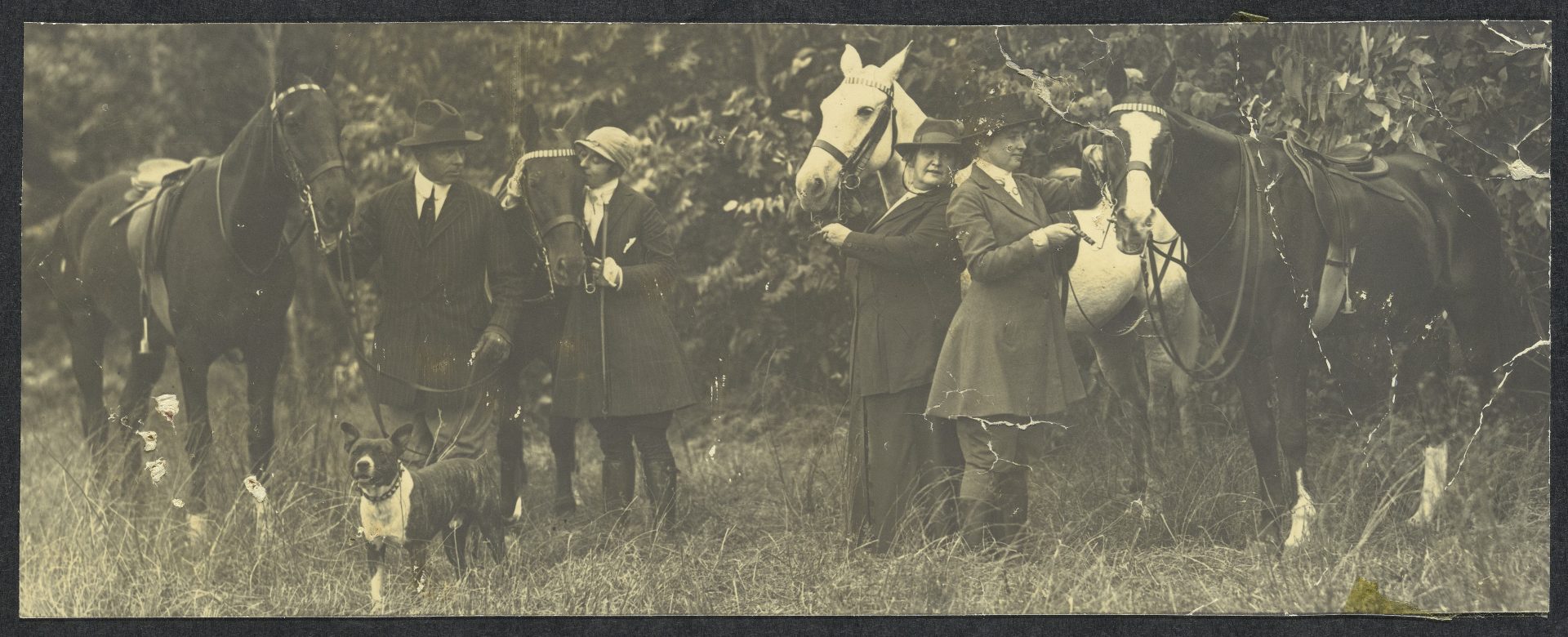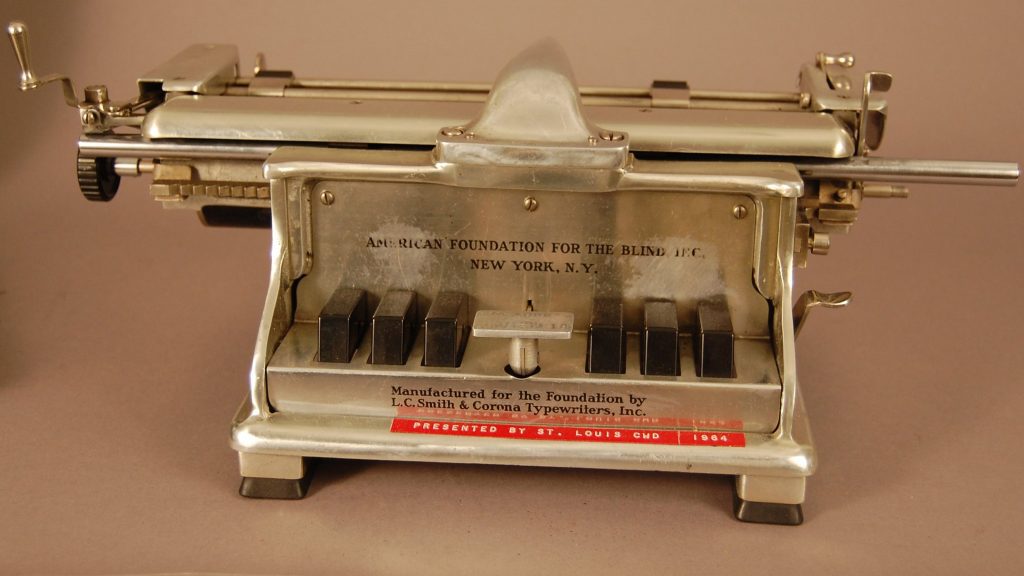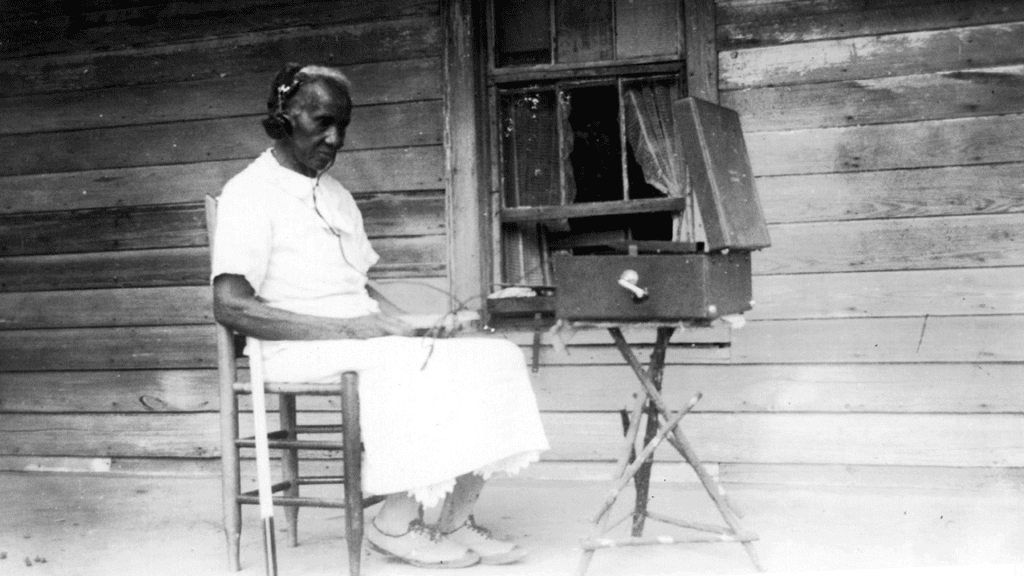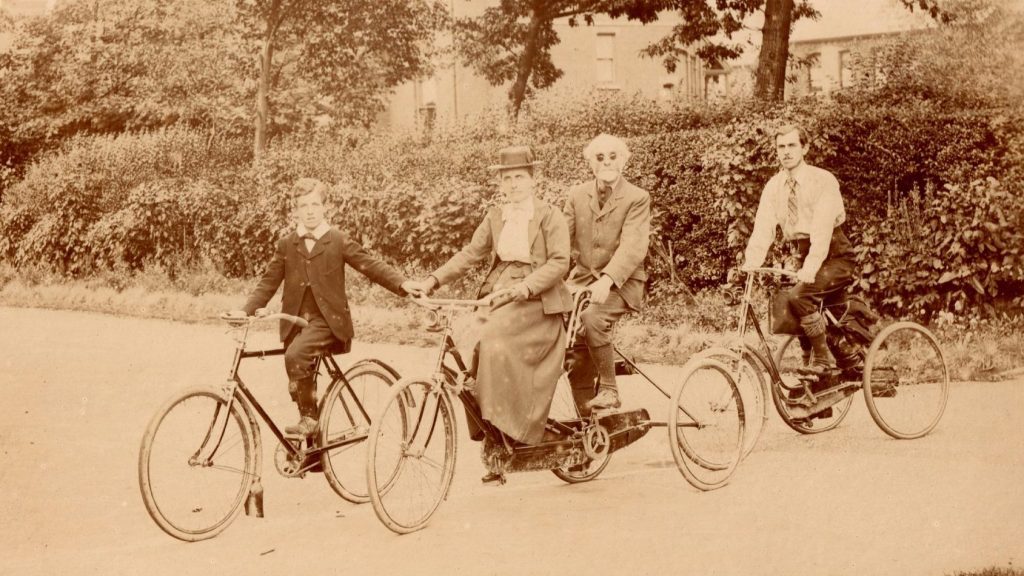Paws and Reflect: Helen Keller and Her Dogs

As we reflect on the life and legacy of Helen Keller, born on this day, June 27, 1880, we remember her not only as one of the world’s biggest trailblazers, but also as someone who celebrated many of the milestones of her life with her furry friends. They provided comfort and companionship and helped to make each of her days special.
It’s often said that diamonds are a girl’s best friend, but for Helen Keller, some of her most cherished companions walked on four legs. While Helen never had a guide dog, her pets were loyal friends throughout her lifetime.
In her 1933 essay, “Three Days to See,” published in the Atlantic, Helen wrote that if she had vision, she would “…like to look into the loyal, trusting eyes of my dogs – the grave, canny little Scottie…and the stalwart, understanding Great Dane, ‘Helga,’ whose warm, tender, and playful friendships are so comforting to me.”
Let’s explore Helen’s life as chronicled by some of her dogs.
Jumbo
Helen’s dog Jumbo was a strong and faithful Chesapeake Bay retriever, who would bring back ducks on hunting trips with Helen’s father.
Belle
Helen tried to teach her childhood pet, Belle, sign language by finger-spelling onto the dog’s paws. Unfortunately, Belle preferred to sleep rather than retain Helen’s lessons.
Lioness
When Helen was a teenager, she had a bull mastiff named Lioness. The dog was a great companion to Helen before she went off to college.
Sir Thomas
When Helen attended Radcliffe College, one of her classmates gifted her a Boston bull terrier named Sir Thomas, also known as Phiz. The dog would attend lectures with Helen throughout her undergraduate education.
Kaiser
Kaiser, Helen’s French bull terrier, loved apples. Helen wrote, “He learned to hold an apple between his paws and eat it with a good deal of gusto.”
Sieglinde
About her Great Dane, Sieglinde, Helen said, “Of all the dogs we ever owned, she was the most beautiful and intelligent.” Anne Sullivan even trained Sieglinde to talk. She could successfully say the word “Mama,” and used it to her advantage whenever a meat platter was passed around the table.
Kamikaze
In 1937, the Japanese government gave Helen an Akita dog named Kamikaze. This action introduced a new dog breed to the United States as Kamikaze was the first Akita dog to live in America. Helen said, “If ever there was an angel in fur, it was Kamikaze. The Akita dog has all the qualities that appeal to me – he is gentle, companionable and trusty.” Unfortunately, at only seven and a half months old, Kamikaze died of distemper.
Kenzan-Go
In 1939, after hearing of Kamikaze’s passing, the Japanese government sent Helen a new Akita: Kamikaze’s younger brother, Kenzan-Go. Helen nicknamed him “Go-Go,” and he held a special place in her heart alongside five other dogs in the house. As Americans read about and saw pictures of Go-go, they wanted to own Akitas just like him. Eventually, there was a breed standard and Akita dog shows.
Dogs were important to Helen. In an interview, she said, “Nobody who is not blind, as much as they may love their pet, can know what a dog’s love really means. Dogs have travelled all over the world with me. They have always been my companions. A dog has never failed me.” Even though she couldn’t see her pets nor hear them bark, Helen knew the universal love of a dog.
This article was compiled with information from the Perkins School for the Blind, the American Kennel Club, and America Comes Alive. To learn more about Helen Keller, visit the AFB Helen Keller Archive.
To learn more about Helen Keller, visit the AFB Helen Keller Archive.
Share this article.
Related articles

The Foundation Writer
When the AFB Helen Keller Archives were loaned to APH in 2020 by the American Foundation for the Blind, they...

Finding Sadie
“The blind veterans here in the Helen Keller class are able, thru talking books, to obliterate the tedious hospital hours...

Sir Francis Campbell Rides Again
The American Foundation for the Blind Archive, housed at APH since 2020, never fails to provide surprises. This September 2021...
